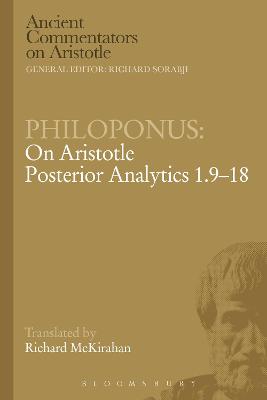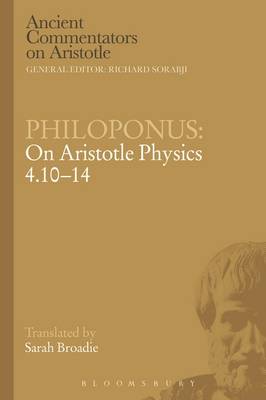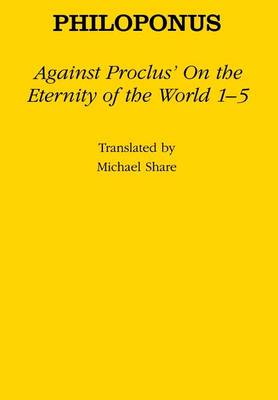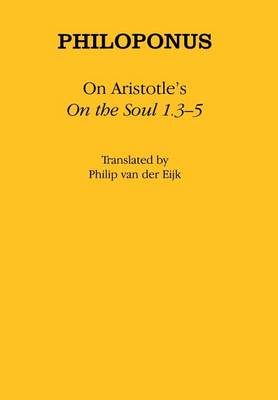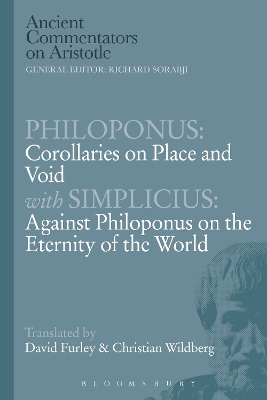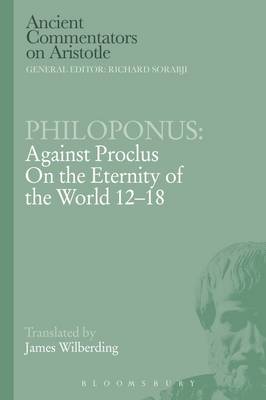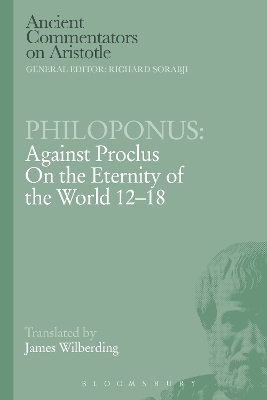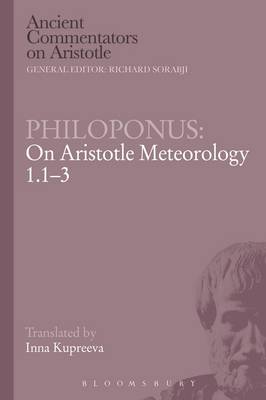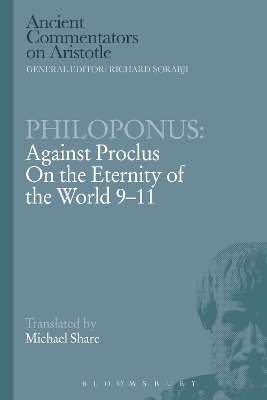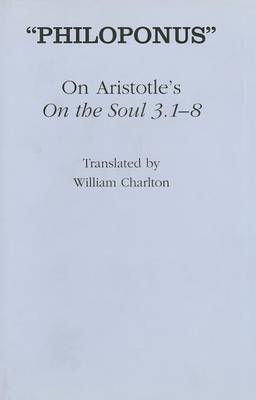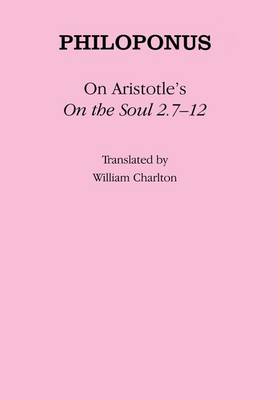Ancient Commentators on Aristotle
12 total works
This volume contains an English translation of Philoponus' commentary, a detailed introduction, extensive explanatory notes and a bibliography.
This volume contains an English translation of Philoponus' commentary, as well as a detailed introduction, extensive explanatory notes and a bibliography.
Philoponus: Corollaries on Place and Void with Simplicius: Against Philoponus on the Eternity of the World
by Philoponus
In the second document Simplicius attacks a lost treatise of Philoponus which argued for the Christians against the eternity of the world. He exploits Aristotle's concession that the world contains only finite power. Simplicius' presentation of Philoponus' arguments (which may well be tendentious), together with his replies, tell us a good deal about both Philosophers.
Philoponus: Against Proclus on the Eternity of the World 2-18
by Philoponus
Philoponus: Against Proclus on the Eternity of the World 12-18
by Philoponus
Philoponus: Against Proclus On the Eternity of the World 9-11
by Philoponus
